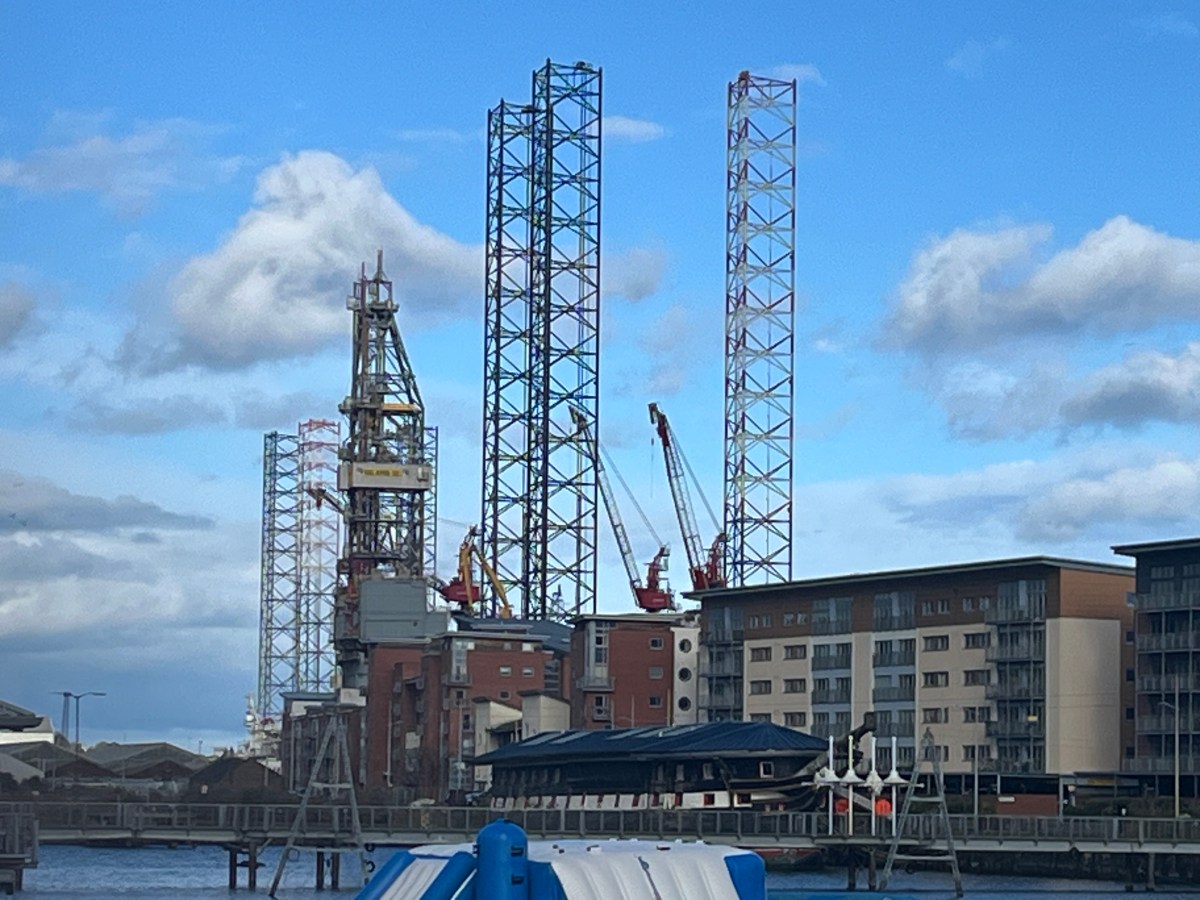We were invited to contribute to a workshop on fossil fuels and developing a workers’ plan for just transition held in London on 13 April 2024 by the Campaign Against Climate Change Trade Union Group. This is a summary of the contribution made by Pete Cannell – responses to this piece would be very welcome.

The previous speakers have talked about some of the very important practical issues that are central to enabling a transition to a sustainable zero carbon economy. There’s plenty of evidence to show that phasing out oil and gas combined with serious investment in renewables creates more jobs. The Sea Change report, published in 2019, shows how switching from oil and gas to wind and solar would create a big net increase in jobs and how failing to make this transition would mean that targets to cut carbon emissions would not be met.
Similarly, home insulation, retrofitting and replacing gas with electricity for heating and cooking is essential, but critically dependent on a skilled workforce.
This workshop is framed around developing a workers plan for just transition. I would argue that the main elements of such a plan are in place. That being the case in the rest of this contribution I’d like to talk about why there’s not yet a simple consensus about a plan. Having a plan is clearly necessary, and critical to being credible in the eyes of working people who are not yet convinced.
In one sense we’ve made serious progress in the last five or so years, it’s now common sense in the climate movement to talk about the role of workers and the need for a just transition. I think in this respect COP26 in Glasgow was a watershed moment. But ironically in practical terms, in terms of action I think we’ve gone backwards in the same period. So, for example, the number of workers in renewables in Scotland is about the same now as it was in 2014. In the eyes of many workers talk of just transition looks like hot air. And in the hands of right-wing populist politicians, it fuels arguments that the climate crisis is not a problem and climate action is a threat. So, there’s a real danger that repetition of just transition, in the absence tangible steps that improve lives and livelihoods, becomes a form of greenwashing.
So, while we need consensus on what to do for me the 64,000-dollar question is
How do we build a mass movement with powerful roots in every workplace and working-class community that has the power to make the necessary changes happen?
I think the climate movement often underestimates the extent to which commitment to the North Sea and to the interests of the big oil and gas companies shapes and directs climate policy. Westminster, Holyrood, the energy sector trade unions and the oil and gas industry work in partnership through what used to be called Oil and Gas UK and has now been rebranded as Offshore Energies UK. They are all signed up to the North Sea Transition Deal and it essentially guides their actions. So, for example it’s hard to find a serious analyst who things hydrogen for domestic heating and cooking makes sense but using hydrogen in this way remains a key plank of policy for both Westminster and Holyrood. And while it does other options are not pursued. Why? Because hydrogen together with Carbon Capture and Storage is the best option for Fossil Capital that wants to maintain existing market dominance, infrastructure and (not least) profits.
For more than fifty years the big oil and gas companies have used their operations in the UK sector of the North Sea to blaze a trail for what we have come to know as neoliberalism; establishing practices that have been copied and taken up internationally. Outsourcing, multiple layers of subcontracting, vicious anti-union policies and the use of blacklists. At the same time the so-called free ‘market’ has been featherbedded by massive state subsidies which have exceeded taxation revenue.
In the old saying – if we had a choice – we wouldn’t start from here. All the evidence is that we are just going past the 1.5degree threshold and the scientific evidence is that change is taking place more rapidly than anticipated. This while the Scottish government which has been strong on rhetoric but feebly reliant on the market for action is judged to be a long way for reaching its targets and Westminster gives the green light for maintaining oil and gas production. And the most important unions remain wedded to a policy of partnership with the energy industry. To answer my earlier question, that partnership, is why we don’t have consensus about a plan. It’s the partnership that pulls in Unite, RMT and GMB behind CCS, Hydrogen and Nuclear.
In this context I think it’s legitimate to ask whether just transition is any longer the right framing for what we want or need.
We need to be clear about what we want to happen and largely that thinking is in place. But to make it happen – perhaps what we should now be talking about is rupture rather than transition. And the power to make that rupture resides within the working class.
North Sea workers are key, but the oil industry has been successful at keeping their organisation fractured and largely ineffective. I think it’s most likely that oil workers will become active participants in the rupture we need only if the mass movement we need is built across all sectors and in working class communities.
And if we are to win that mass participation then there’s no place for partnership with Fossil capital – and that means some very sharp arguments within our movement.



